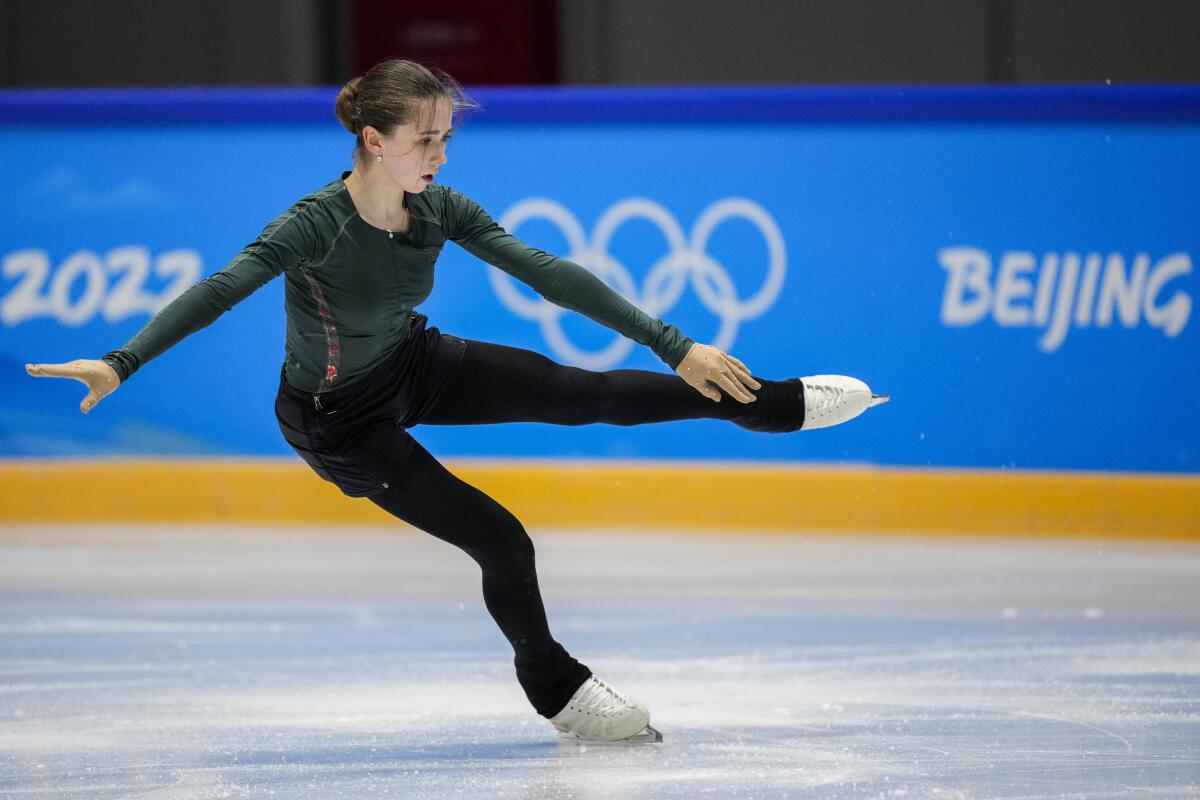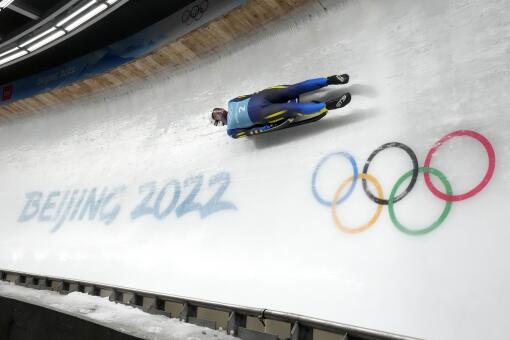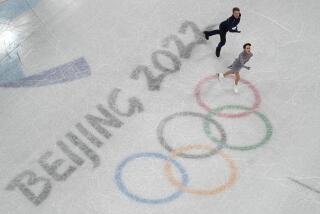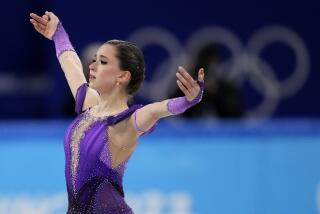Russian figure skater Kamila Valieva cleared to compete in Olympics following ruling

- Share via
BEIJING — Teenage Russian figure skater Kamila Valieva has been cleared to compete in the women’s figure skating competition at the Winter Olympics despite failing a pre-Games drug test.
The Court of Arbitration for Sport released its ruling less than 12 hours after a hastily arranged hearing that lasted into early Monday morning that the 15-year-old Valieva, the favorite for the women’s individual gold, does not need to be provisionally suspended ahead of a full investigation. The court gave her a favorable decision in part because she was a minor or “protected person” and was subject to different rules from an adult athlete.
“The panel considered that preventing the athlete to compete at the Olympics would cause her irreparable harm in the circumstances,” CAS Director General Matthieu Reeb said.
Now, Valieva and her fellow Russian skaters can aim for the first podium sweep of women’s figure skating in Olympic history. The event starts with the short program Tuesday and concludes Thursday with the free skate.
The panel also cited fundamental issues of fairness in its decision, the fact that she tested clean in Beijing and that there were “serious issues of untimely notification” of her positive test.
Valieva tested positive for the heart drug trimetazidine on Dec. 25 at the Russian nationals but the result from a Swedish lab didn’t come to light until a week ago, after she helped the Russian Olympic Committee win the team gold.
The Russian anti-doping agency immediately suspended her, then lifted the ban a day later, putting into limbo the awarding of the medals. The International Olympic Committee and others appealed and an expedited hearing was held Sunday night. Valieva testified via videoconference.
Athletes under 16 like Valieva have more rights under anti-doping rules and typically aren’t held responsible for taking a banned substance. The focus of any future investigation will will hone in on her personal team — coaches, doctors, nutritionists, etc.
This ruling only addresses whether Valieva can keep skating before her case is resolved. It doesn’t decide the fate of the one gold medal that she has already won.
Valieva landed the first quadruple jumps by a woman at the Olympics when she won the team event gold with the Russian Olympic Committee on Monday.
That medal, and any medal she wins in the individual competition, could still be taken from her.
More to Read
Go beyond the scoreboard
Get the latest on L.A.'s teams in the daily Sports Report newsletter.
You may occasionally receive promotional content from the Los Angeles Times.







